We made it to spring! ...Right?
The weather might not be as warm as we hoped, but spring events such as Earth Day and PBI's Environmental Law Forum are right around the corner! Be sure to join us for the big two-day event next week at the Hilton Harrisburg! Learn about emerging trends, technological innovations, and best management strategies while revitalizing your practice.
Even if it's too gloomy to step outside, you can always surround yourself with greenery in your home or work office, something that's proven to boost your mental health and overall wellbeing. Before making any purchases, be sure to think through what kind of plant might suit your space best. Do you work a hybrid schedule, meaning you'll rarely be in the office to water the plant? Do you have windows with natural light pouring in? Would you prefer a non-toxic plant to keep curious pets and children safe? We've got you covered.
In 2022, we shared six unique, low-maintenance plants to brighten up your office...here are six more!
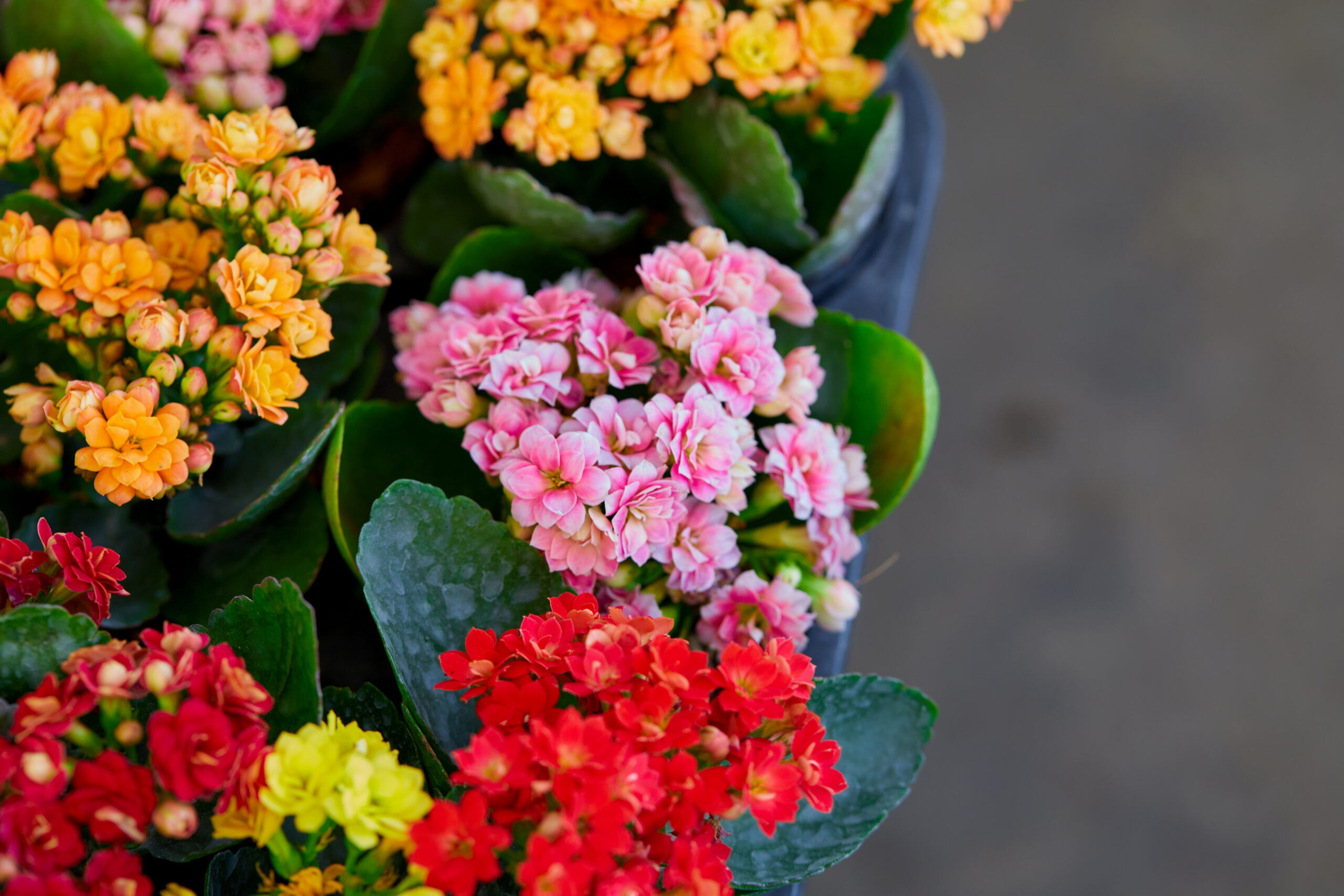
1. Kalanchoe. The Kalanchoe is a beautiful tropical plant that comes in many different colors. It can bloom red, pink, yellow, orange, or white flowers. It also has unique, waxy leaves with scalloped edges that store water, classifying this plant as a succulent.
Keep in mind that the Kalanchoe's flowers will eventually turn brown and fall off. You'll have to give the plant a little haircut and snip back the dead parts. If you want it to bloom again, you need to trick the plant into thinking it's winter by limiting it to 8 hours of light a day, then putting it in darkness to rest. That will aid in restarting its bloom cycle. If you don't mind shuffling things around a bit, then the Kalanchoe would make a great addition to any office, as it is a hardy plant that does well indoors with minimal water.
Care: Bright, indirect light. Water 1x a week; less in winter.
Toxic: Yes.
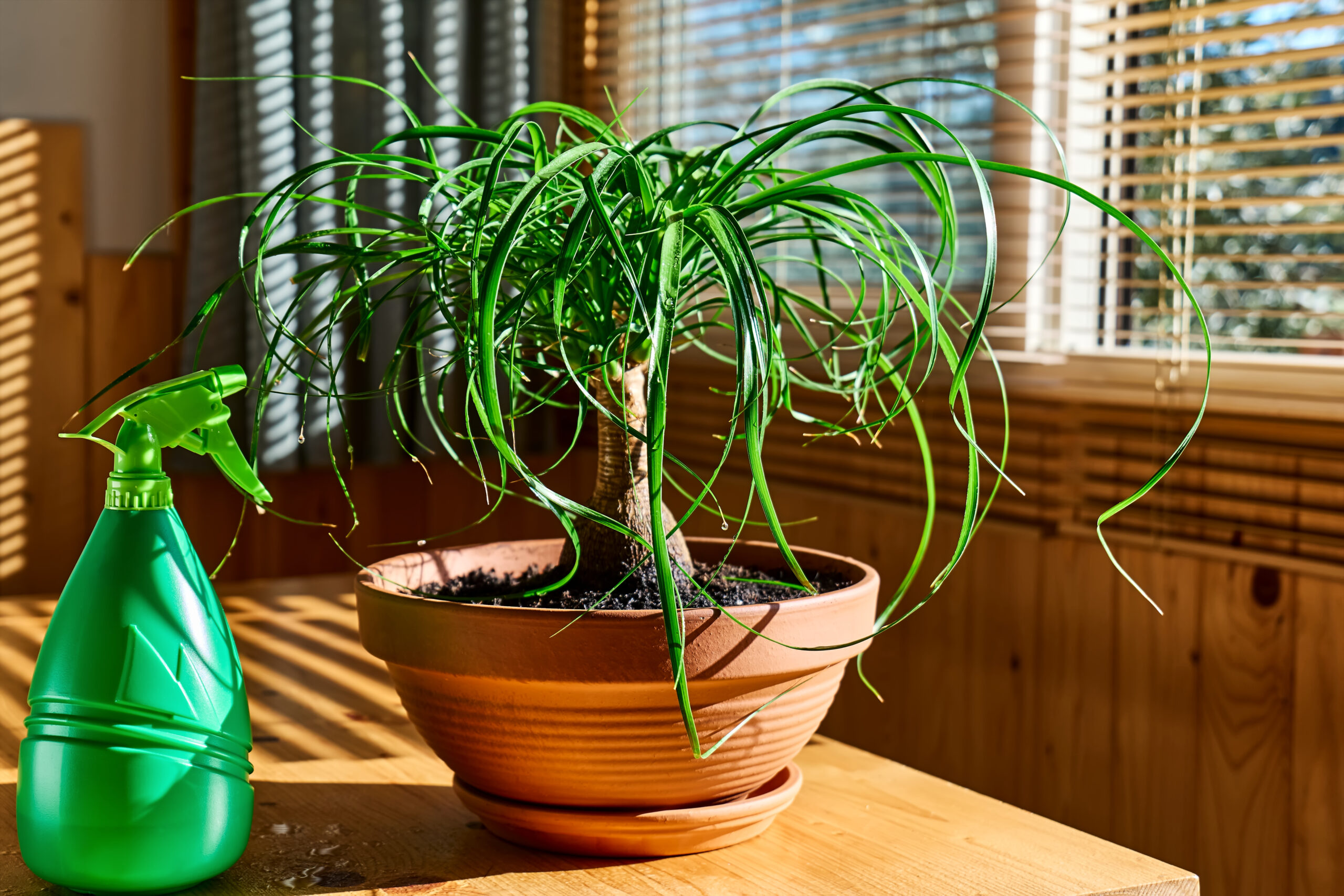
2. Ponytail Palm. These desert plants adore the bright sun and dry conditions. With a sturdy, water-storing trunk and funky, ponytail-like leaves, the Ponytail Palm will happily bring beach vibes to your law firm. Since it has adapted to survive droughts, it will be tough for you to kill it outright, making it a great plant for any beginner. Just make sure not to overwater it or place it in a cold, drafty area.
Did you know the Ponytail Palm can grow up to 30 feet in the wild? No need to worry about your office turning into a jungle, though! Ponytail Palms grow very slowly and will remain small if kept in a small, shallow pot. If you want it to grow bigger, try repotting it into a slightly larger pot with each passing year. This plant's adaptability is truly impressive.
If you rarely visit the office or often forget to water your plants, the Ponytail Palm is the one for you!
Care: Bright, indirect light or full sun. Water every 1-2 weeks.
Toxic: No.
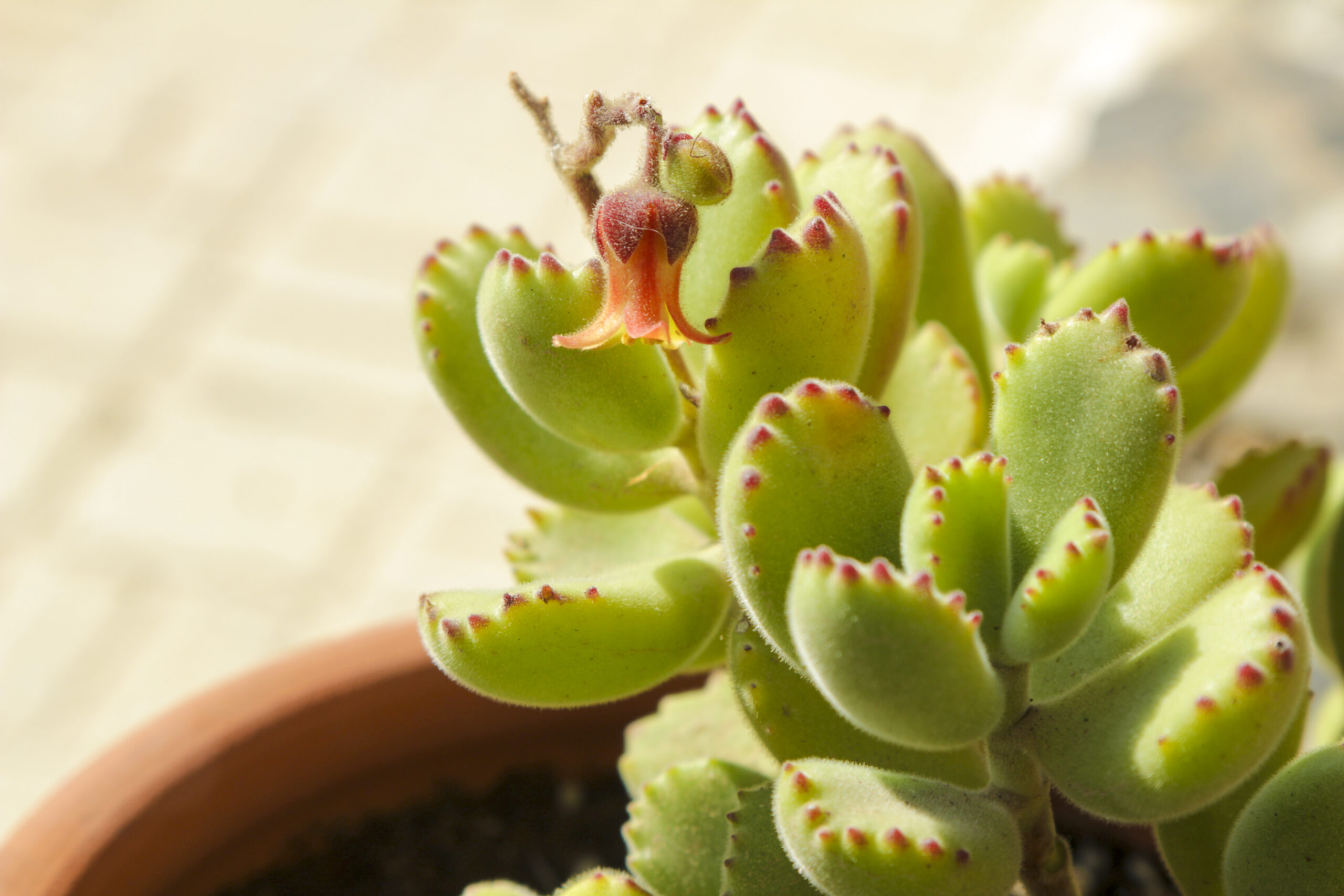
3. Bear's Paw Succulent. This strange (and aptly named) little plant is ready to serve as your next conversation-starter. Its leaves are thick and extremely soft to the touch, while boasting tiny teeth that perfectly resemble bear paws. These leaves will deflate and turn wrinkled if the plant becomes thirsty, signaling when it needs water. Just be careful not to overwater it or else its roots will rot. Succulents such as these prefer soil that drains easily.
These plants are listed as non-toxic, but there are conflicting testimonies that it can be mildly toxic. Better safe than sorry! Be sure to keep this plant out of reach of children and animals.
Care: Indirect light. Water 1-2x a week.
Toxic: Yes.
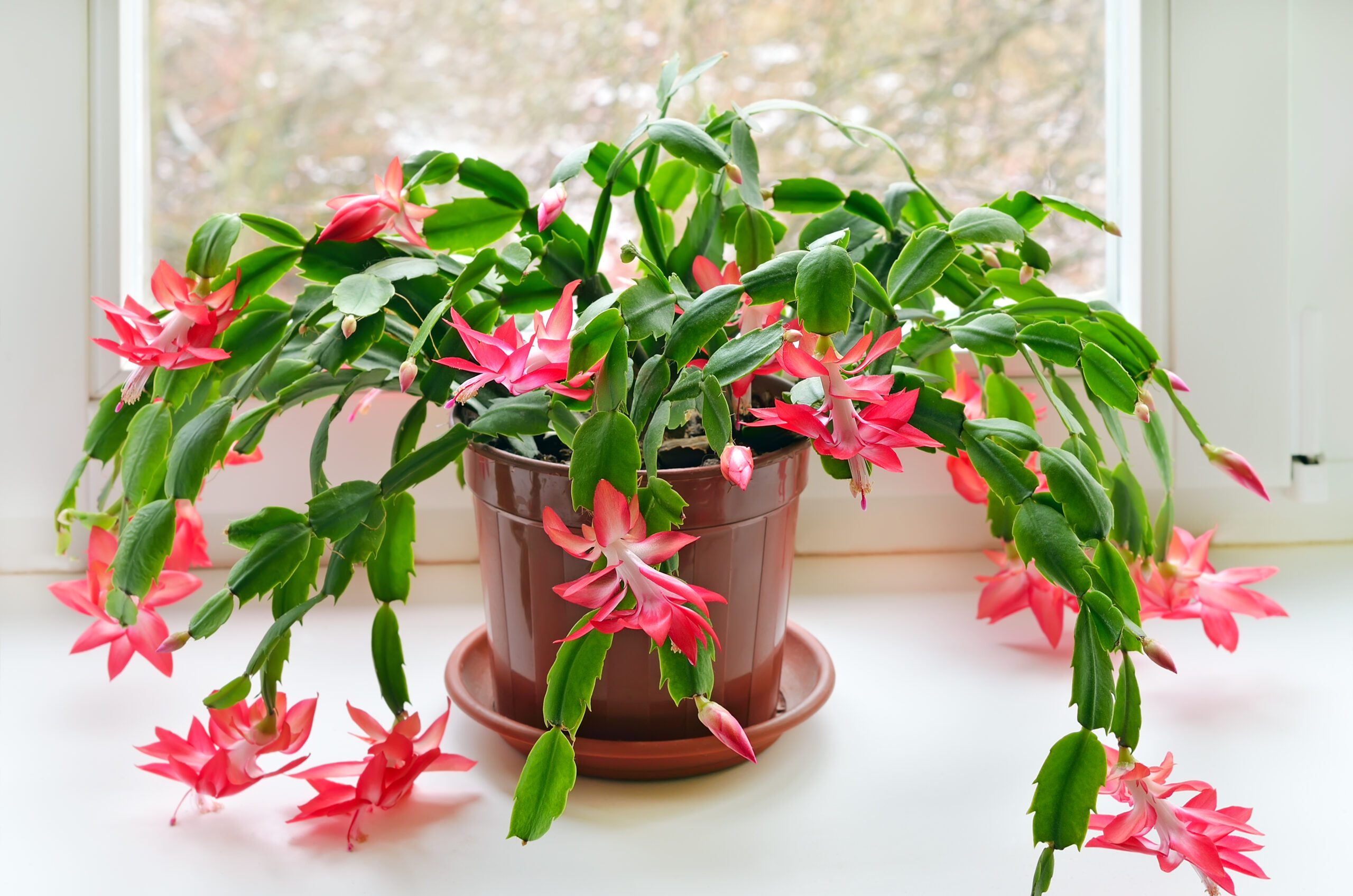
4. Christmas Cactus. This special cactus is well-loved due to the fact it blooms during the holiday season. It prefers bright, indirect light, a humid environment, and a somewhat cooler temperature of around 65 degrees. This cactus can withstand some neglect and go without water for several weeks, but during blooming season, make sure you're giving it a little extra water so it can support those bright, beautiful flowers.
Christmas Cacti are easy to grow and can last for many years--over a hundred years, in fact. Families will often pass them down through the generations, making this cactus quite the memorable gift.
Care: Bright, indirect light. Water every 1-3 weeks.
Toxic: No.
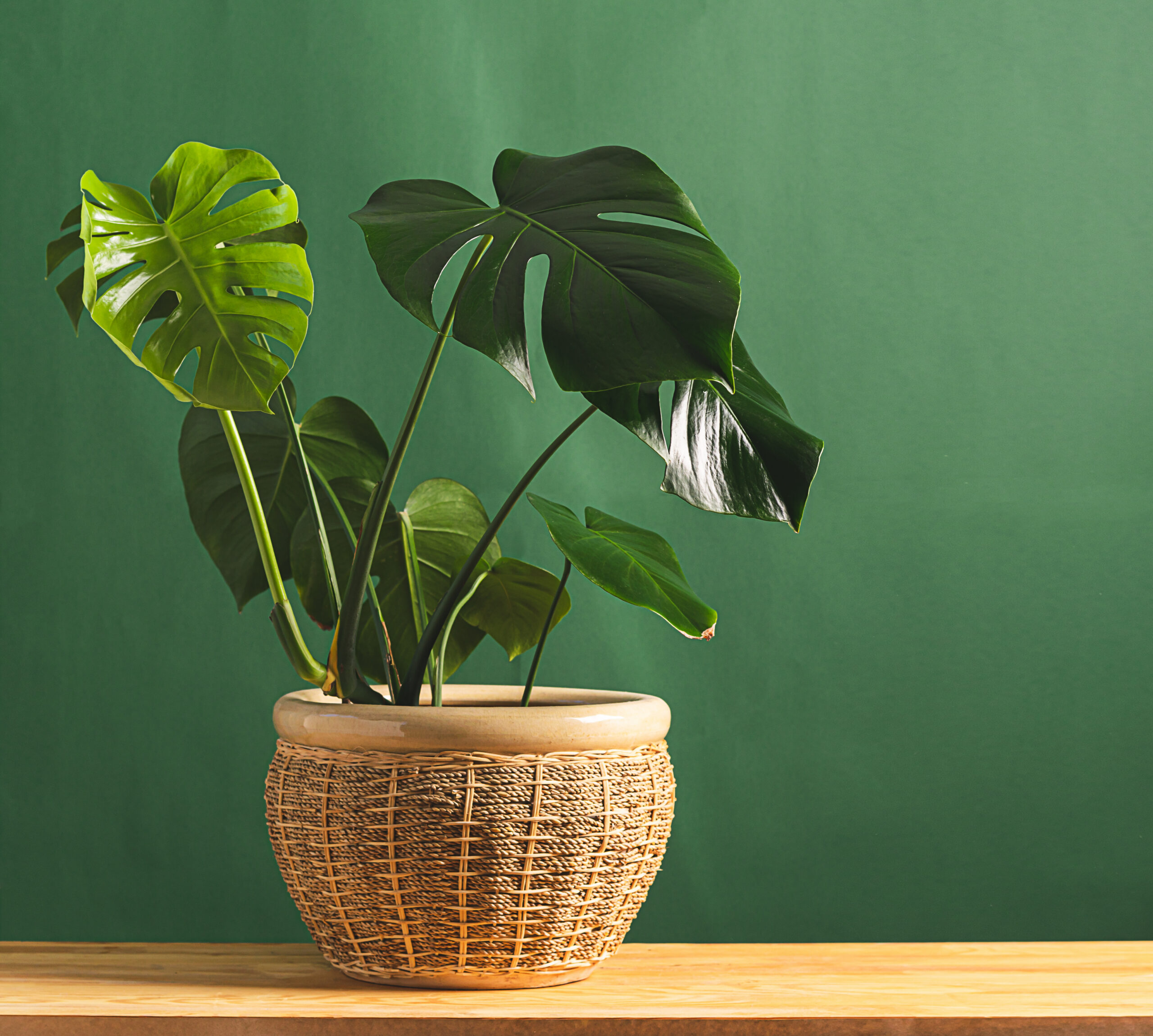
5. Monstera. Got an empty corner in your office begging for a big, beautiful plant addition? Try a Monstera. Monstera are nicknamed "Swiss Cheese Plants" for their large, hole-filled leaves. It is often confused with other plants such as the Pothos or Philodendron. This easygoing plant prefers bright, indirect light, but can adjust to medium light and withstand skipped waterings, earning it the title of "low maintenance."
Your Monstera will tell you how it's feeling through its leaves. If they droop and have brown edges, time to give it some water. If they turn yellow, it might be overwatered. If they harbor big brown spots, your Monstera is sunburnt and needs to be moved to a location with indirect light.
Care: Bright, indirect light. Water 1x a week.
Toxic: Yes.
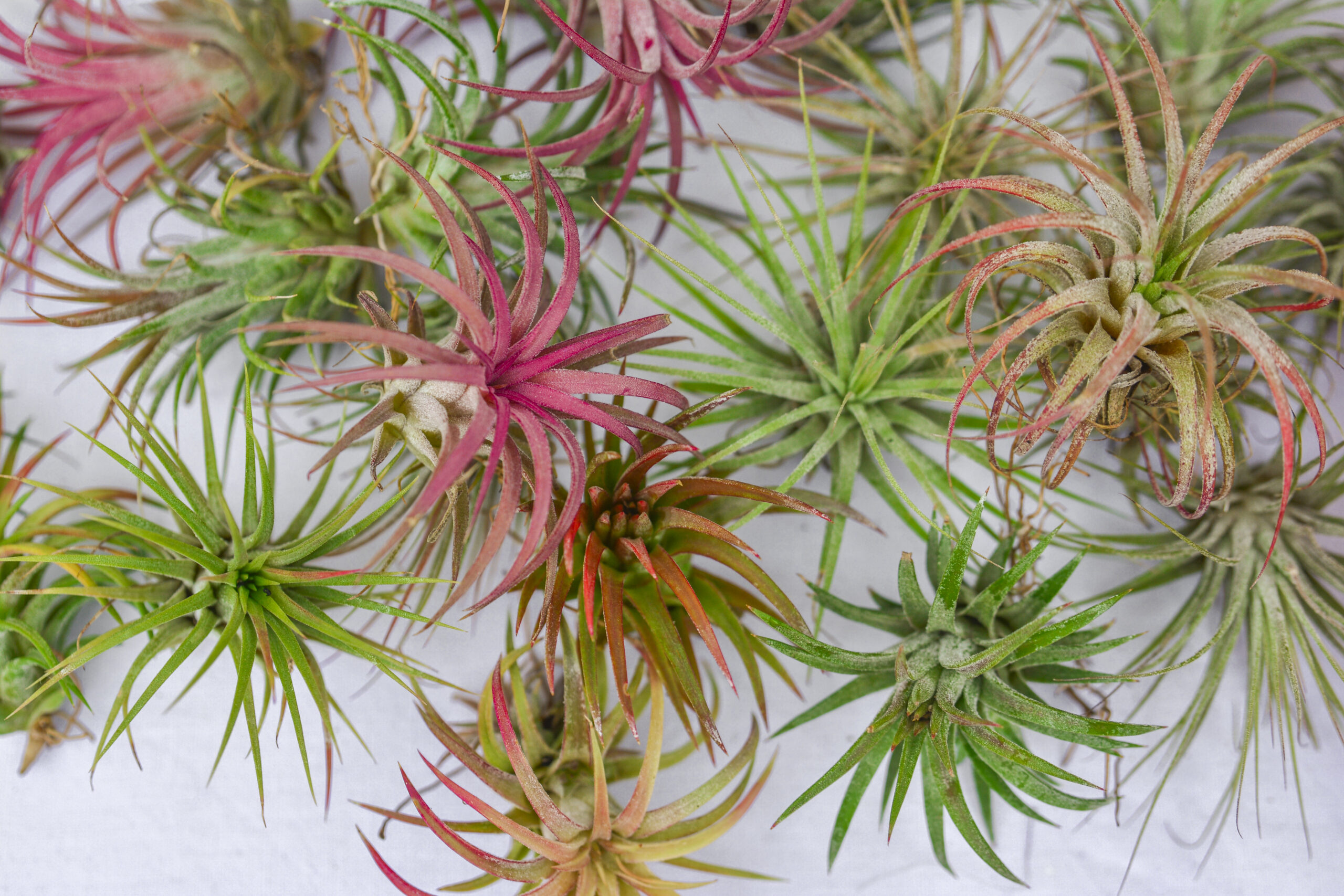
6. Air Plants. Air Plants, also known as Tillandsia, come in all shapes and sizes. Their most interesting quality? They have no roots and therefore do not require potting soil or even a pot! Instead, they absorb water and nutrients through tiny growths on their leaves called trichomes. You can water your air plant by soaking it in a glass of water or spritzing it with a bottle. Soak them for about 20-30 minutes every week. Once finished, shake off the excess water droplets and allow them to air dry.
It's fun to get creative with how you display your Air Plant! They look lovely in hanging terrariums or resting in a glass bowl of pebbles. You might choose to make it look like the plant is sprouting from a rock or a seashell for a more natural look. Or you could pick up one of these artsy display stands on Amazon. Choose something that matches the aesthetic of your office!
Care: Bright, indirect light. Soak 1x a week for 20-30 minutes.
Toxic: No.
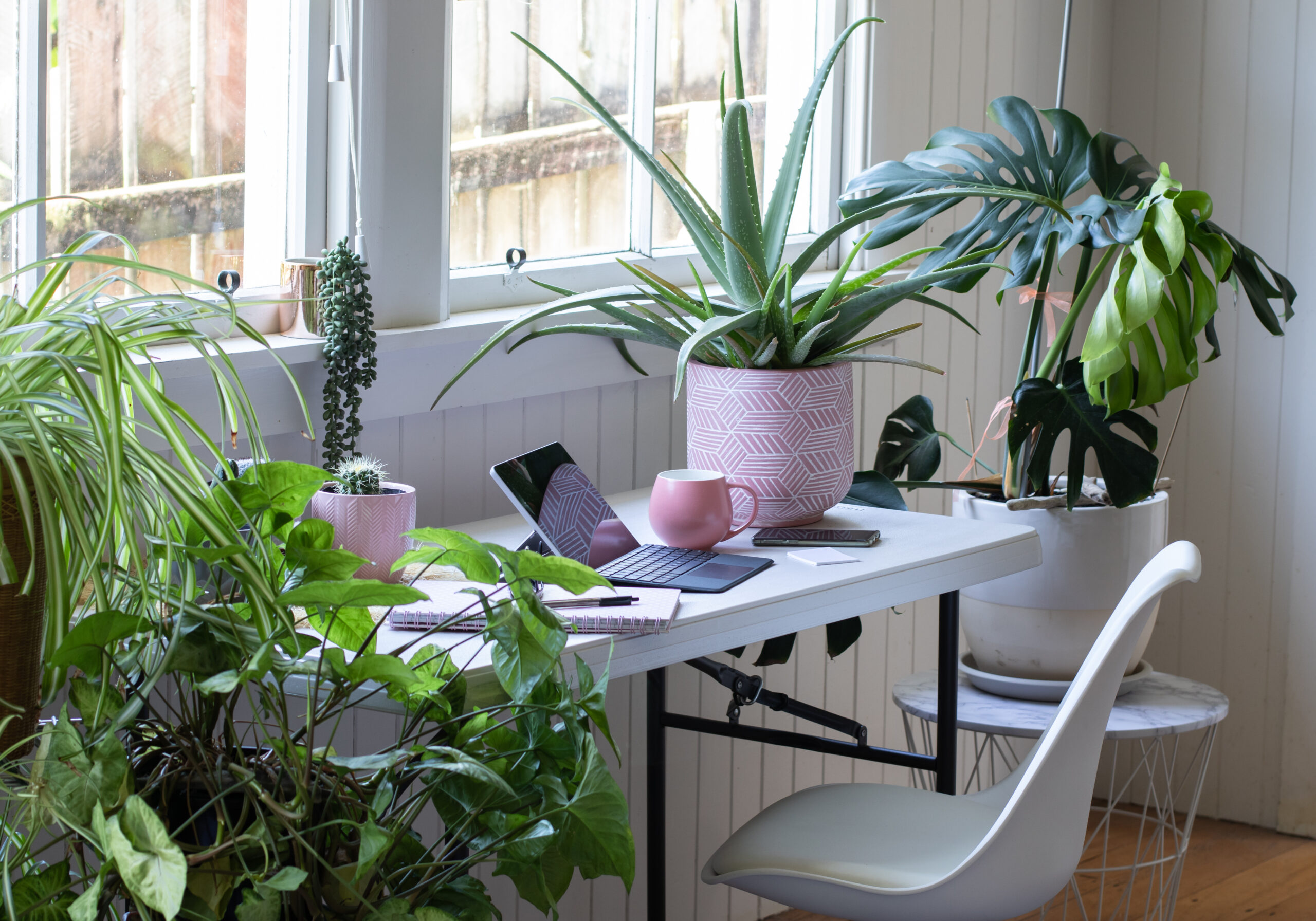
Want to get even more involved in environmental law? Join PBA's Environmental Law Committee! This committee brings together practitioners who are in the trenches to regularly discuss topics relevant to their practice. We'll help you stay up to date and avoid the stress of missing out on important developments. Learn more here!



